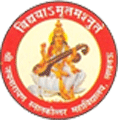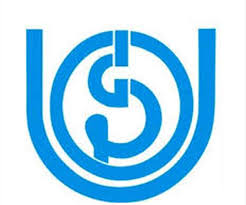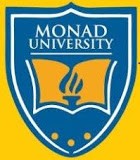- Explore All Program
Browse by Domains
Popular PG Programs
Popular UG Programs
Popular Diploma Programs
-

DIPLOMA IN ENGINEERING IN ARCHITECTURAL ASSISTANTSHIP
3 YearsCompare 50 Universities
View Specialisations -

DIPLOMA IN ENGINEERING IN AUTOMOBILE ENGINEERING
3 YearsCompare 56 Universities
View Specialisations
- Universities
-
UG Courses
- Management
-
Engineering
- B.TECH
- B.TECH AUTOMOBILE ENGINEERING
- B.TECH CHEMICAL ENGINEERING
- B.TECH CIVIL ENGINEERING
- B.TECH COMPUTER SCIENCE & ENGINEERING
- B.TECH ELECTRICAL & ELECTRONIC ENGINEERING
- B.TECH ELECTRICAL ENGINEERING
- B.TECH ELECTRONIC & COMMUNICATION ENGINEERING
- B.TECH ELECTRONIC & INSTRUMENTATION ENGINEERING
- B.TECH INFORMATION TECHNOLOGY
- B.TECH MECHANICAL ENGINEERING
- B.TECH CIVIL ENGINEERING LATERAL ENTRY
- B.TECH COMPUTER SCIENCE & ENGINEERING LATERAL ENTRY
- B.TECH ELECTRICAL ENGINEERING LATERAL ENTRY
- B.TECH ELECTRONIC & COMMUNICATION ENGINEERING LATERAL ENTRY
- B.TECH MECHANICAL ENGINEERING LATERAL ENTRY
- DIPLOMA IN ENGINEERING
- B.E. COMPUTER ENGINEERING
- B.E. ELECTRICAL ENGINEERING
- B.E. ELECTRONICS & COMMUNICATION ENGINEERING
- B. TECH. IN ELECTRONICS & COMMUNICATION ENGINEERING
- B.TECH. ELECTRICAL & ELECTRONICS ENGINEERING
- B.TECH.IN BIOTECHNOLOGY
- B.TECH. COMPUTER SCIENCE
- ITI
- B.Tech in Biotechnology
- Polytechnic
- Medical
- Agriculture
- Architecture
-
Traditional courses
- B.A
- B.A. ANCIENT HISTORY
- B.A. EDUCATION
- B.A. ENGLISH LITERATURE
- B.A. ENGLISH
- B.A. GEOGRAPHY
- B.A. HINDI LITERATURE
- B.A. HINDI
- B.A. HISTORY
- B.A. HOME SCIENCE
- B.A. HONS. ECONOMICS
- B.A. POLITICAL SCIENCE
- B.A. PSYCHOLOGY
- B.A. SANSKRIT
- B.A. SOCIOLOGY
- B.A. TOURISM STUDIES
- B.COM
- B.SC.
- BPA
- BPE & BPES
- BFA
- BTC
- B.A in Ancient History
- B.A in Economics
- Dental Course
- Designing Courses
- Education
- Paramedical
- Pharmacy
- Computer Applications
- Mass Communication
- Hotel Management
- Vocational Courses
-
Doctor of Philosophy
- Ayurvedic
- Nursing Courses
- Law Courses
- Social Work Courses
- IT & Sofware Courses
- LIbrary Courses
-
PG Courses
-
Management
- MBA
- MBA IN MARKETING
- MBA IN INTERNATIONAL BUSINESS (IB)
- MBA IN OPERATION MANAGEMENT
- MBA IN INFORMATION TECHNOLOGY (IT)
- MBA IN MARKETING MANAGEMENT
- MBA IN HOSPITAL MANAGEMENT
- MHM
- MBA EXECUTIVE
- MBA BANKING & FINANCE
- MTTM
- MBA INTEGRATED
- MBA HUMAN RESOURCE MANAGEMENT
- MBA. FINANCE
- MBA. PHARMACEUTICAL MANAGEMENT
- MBA FINANCIAL MANAGEMENT
- MHM
- MBA FIRE & SAFETY MANAGEMENT
- MBA RETAIL MANAGEMENT
- MASTER OF TOURISM & TRAVEL MANAGEMENT
- MBA in Hotel Management
-
Engineering
- M.TECH
- M.TECH CIVIL ENGINEERING
- M.TECH COMPUTER SCIENCE & ENGINEERING
- M.TECH ELECTRICAL ENGINEERING
- M.TECH ELECTRONIC & COMMUNICATION ENGINEERING
- M.TECH INFORMATION TECHNOLOGY
- M.TECH MECHANICAL ENGINEERING
- M.TECH. IN INTEGRATED FAMILY & COMMUNITY SCIENCE
- M.TECH. ELECTRONICS & COMMUNICATION ENGINEERING
- M.TECH. BIOTECHNOLOGY
- M.TECH. IN ELECTRONICS AND COMMUNICATION ENGINEERING
-
Polytechnic
-
Medical
- M.P.T. ORTHOPAEDICS
- M.D. ANATOMY
- MD IN BIO-CHEMISTRY
- MD IN COMMUNITY MEDICINE
- MD IN FORENSIC MEDICINE
- MD OBSTETRICS & GYNAECOLOGY
- MD
- MD IN MICROBIOLOGY
- MD IN PAEDIATRICS
- MD IN PHARMACOLOGY
- MD IN PHYSIOLOGY
- MD IN RADIOTHERAPY
- MPH
- M.V.SC.
- MS E.N.T.
- MD PSYCHIATRY
- MD IN GENERAL MEDICINE
- M.CH UROLOGY
- MD ANAESTHESIOLOGY
- MS ORTHOPAEDICS
- MD AYURVEDA
- B.A.M.S
- DM CARDIOLOGY
- DM NEUROLOGY
- MCH SURGICAL ONCOLOGY
- M.CH.
- M.SC. CLINICAL RESEARCH
- MD DERMATOLOGY
- MS
- M.SC. OCCUPATIONAL THERAPY
- D.Litt
- Doctor of Medicine
- MMLT
- M.S. in Orthopaedics
- M.S. in General Surgery
- M.D IN Psychology
- Agriculture
- Architecture
-
Traditional courses
- M.A.
- M.A. ECONOMICS
- M.A. EDUCATION
- M.A. ENGLISH
- M.A. GEOGRAPHY
- M.A. HINDI
- M.A. HISTORY
- M.A. PHILOSOPHY
- M.A. POLITICAL SCIENCE
- M.A. PUNJABI
- M.A. RURAL DEVELOPMENT
- M.A. SANSKRIT
- M.A. SOCIOLOGY
- M.COM
- M.SC.
- MA DISTANCE EDUCATION
- M.A. ADULT EDUCATION
- MA DEVELOPMENT STUDIES
- MA EXTENSION & DEVELOPMENT STUDIES
- MA IN GENDER AND DEVELOPMENT STUDIES
- MA IN WOMEN’S AND GENDER STUDIES
- MFA
- Dental Course
- Designing Courses
- Education
- Paramedical
- Pharmacy
- Computer Applications
- Mass Communication
-
Hotel Management
- Vocational Courses
- Doctor of Philosophy
-
Ayurvedic
- Nursing Courses
- Law Courses
-
Social Work Courses
- IT & Sofware Courses
- LIbrary Courses
-
Management
- Study Abroad
- Contact us
- Distance Education
 +91 9871242233,9871242244
+91 9871242233,9871242244  support@admissionwave.com
support@admissionwave.com 

















